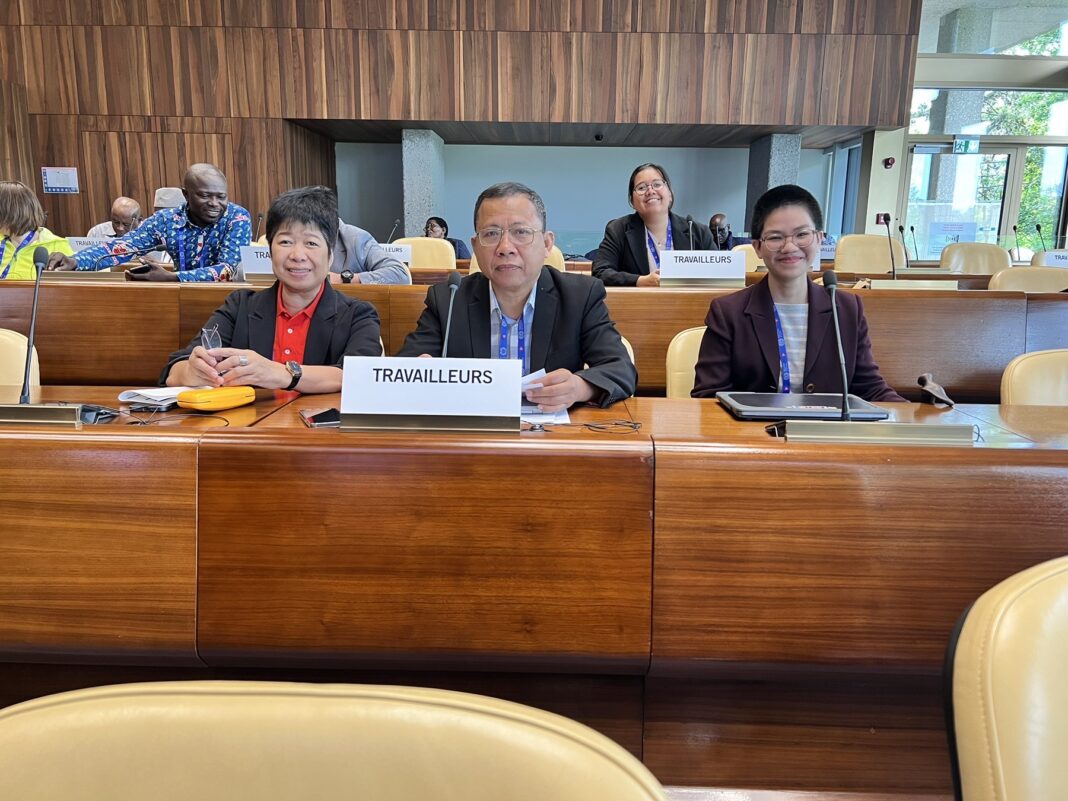The Federation of Free Workers (FFW) has called out the Department of Labor and Employment (DOLE) for “appearing to intentionally mislead the Committee on the Application of Standards (CAS) of the 112th Session of the International Labor Conference (ILC) in Geneva, Switzerland.”
Atty. Sonny Matula, president of the FFW, who is part of the delegation of Filipino workers at the ongoing ILC in Geneva, chided the Philippine government “for reporting to the CAS that the killing of BPO trade unionist Alex Dolorosa was not union related.”
Dolorosa, a trade unionist from BPO Industry Employees Network (BIEN), was slain in April last year.
The DOLE said that “BIEN is registered as a worker’s association and not a union.” Their records for BIEN, according to DOLE “do not show any officer, member, or organizer named Dolorosa. Furthermore, there is no record of any union that he might have organized. Police investigation reports do not indicate that the killing was motivated by his alleged union activities.”
The Phil. government went on to report that, “the alleged perpetrator, a private individual, has been accused of homicide and was arraigned in February 2024 at the Bacolod City Regional Trial Court.”
LABOR REFUTES DOLE STATEMENTS
Filipino trade unions, however, refuted DOLE’s statements.
“It appears that government is attempting to downgrade the case to an ordinary homicide,” Matula said, adding that “the government did a sloppy investigation of Dolorosa’s death, attributing the killing to being “not union related.”
“Evidence suggests that Alex was under surveillance and red-tagged by the police before his death. Conspicuously absent in the DOLE’s report are the information and testomonies from Alex’s colleagues at BIEN,” Matula added.
Dolorosa’s murder has been reported to the DOLE and the ILC last year. The case details have also been documented by the Workers Rights Watch (WRW).
“The DOLE has engaged in hair-splitting over the definitions of trade union and worker’s association. This ignores that under the Labor Code, both are considered labor organizations covered and protected under Section 8 of Article III of the Philippine Constitution and ILO Convention 87,” Matula said.
Matula serves as titular member of the ILC’s Committee on the Application of Standards (CAS) for the Filipino workers’ delegation. He spoke at the same CAS meeting, after Philippine government officials registered their position on the issue.
HAIR-SPLITTING
In a statement to the media, the FFW and the workers’ delegation argued the “misleading statements of the DOLE,” based on the following points:
1. Misleading Classification: DOLE’s classification of BIEN as a worker’s association does not negate the fact that the association may evolve or transform later on into a trade union. The hair-splitting between an association and a trade union seems to be a deliberate attempt to downplay the seriousness of the case. Both types of organizations are protected under labor laws and international conventions.
2. Lack of Records: The absence of records showing Dolorosa’s involvement in BIEN or any union activities is cited by DOLE, but this does not necessarily negate the possibility of his involvement with the same or the potential motives behind his killing. BIEN can easily show proof of Alex’s membership and role in BIEN if DOLE had only asked for it, especially if it is seriously doubting this fact.
3. Police Investigation: The police investigation has not linked the killing to union activities, but circumstantial evidence suggests otherwise. Reports indicate that Alex Dolorosa was under surveillance and had been red-tagged, which could imply a targeted attack due to his labor-related activities.
4. Judicial Proceedings: The timing and manner of the arraignment of the accused raise concerns. It seems government may be pushing for a narrative that fits a less politically sensitive outcome by classifying the case as an ordinary homicide.
5. Labor Law Protections: DOLE’s narrow interpretation of what constitutes a labor union or “union-related” matter undermines the broader protections afforded by both the national constitution and international labor standards, which do not distinguish between types of labor organizations when it comes to protection under the law.
“In summary, the handling of Alex Dolorosa’s case by DOLE and the government appears to be an attempt to minimize its political and social implications by downplaying the potential connection to union activities. This raises serious concerns about the protection of labor rights and the integrity of the investigative and judicial processes in the country,” Matula concluded.



